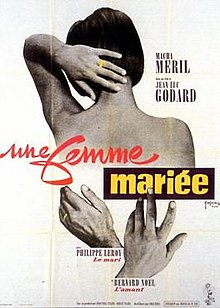.mw-parser-output .hidden-begin{box-sizing:border-box;width:100%;padding:5px;border:none;font-size:95%}.mw-parser-output .hidden-title{font-weight:bold;line-height:1.6;text-align:left}.mw-parser-output .hidden-content{text-align:left}@media all and (max-width:500px){.mw-parser-output .hidden-begin{width:auto!important;clear:none!important;float:none!important))You can help expand this article with text translated from
the corresponding article in French. (May 2013) Click [show] for important translation instructions.
View a machine-translated version of the French article.
Machine translation, like
DeepL or
Google Translate, is a useful starting point for translations, but translators must revise errors as necessary and confirm that the translation is accurate, rather than simply copy-pasting machine-translated text into the English Wikipedia.
Consider
adding a topic to this template: there are already 6,211 articles in the
main category, and specifying|topic= will aid in categorization.
Do not translate text that appears unreliable or low-quality. If possible, verify the text with references provided in the foreign-language article.
You must provide
copyright attribution in the
edit summary accompanying your translation by providing an
interlanguage link to the source of your translation. A model attribution edit summary is Content in this edit is translated from the existing French Wikipedia article at [[:fr:Une femme mariée]]; see its history for attribution.
You may also add the template ((Translated|fr|Une femme mariée)) to the
talk page.
For more guidance, see
Wikipedia:Translation.
1964 French film
| A Married Woman |
|---|
 French poster |
| Directed by | Jean-Luc Godard |
|---|
| Written by | Jean-Luc Godard |
|---|
| Starring | Bernard Noël
Macha Méril |
|---|
| Cinematography | Raoul Coutard |
|---|
| Edited by | Andrée Choty |
|---|
| Distributed by | Columbia Films |
|---|
Release date |
- 4 December 1964 (1964-12-04)
|
|---|
Running time | 94 minutes |
|---|
| Country | France |
|---|
| Language | French |
|---|
A Married Woman (French: Une femme mariée), 1964) was the eighth narrative feature film by French filmmaker Jean-Luc Godard.
Censorship
The Married Woman - Godard's original title for his film - was shown at the Venice Film Festival on 8 September 1964. It was well received. Michelangelo Antonioni, whose first colour film Red Desert was also being shown in competition, went up to Godard after the screening and congratulated him. And it was praised by French critics. Cahiers de Cinema, which had not praised Bande a Part, greeted The Married Woman as a major artistic and intellectual work. In September however, the Commission de Controle (the censorship board) voted 13-5, with two abstentions, to ban the film. Objections centred on the title, which the board said implied all married women were adulterous, - and on the film's devotion 'to the salacious illustration of scenes of sexuality'. The commission's reasons were not made public but were relayed to the minister of information, Alain Peyrefitte. He agreed to meet Godard and months of debate and negotiation followed. Godard believed the real problem was political and that 'The people of the commission have sensed that my film attacks a certain mode of life, that of air conditioning, of the prefabricated, of advertising'. Ultimately Godard made a few changes , including the title, though he refused to remove references to concentration camp inmates, that Peyrefitte had wanted. The film was released on December 5. [1]
